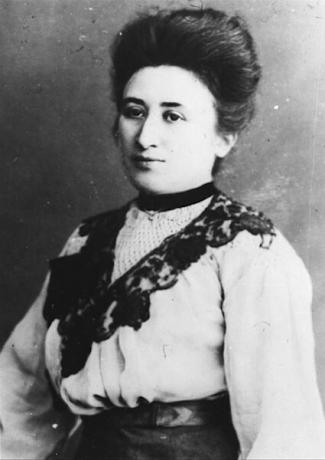A historic journey
One of the most important names in the philosophy of science was actually physicist: Thomas Kuhn, a graduate student in physics at Harvard, while teaching a course that was supposed to explain science to non-scientists, approached the history of science and, later, the philosophy of science. The first result of this fifteen-year foray into the history of science was her essay, “The Structure of Scientific Revolutions”, published in Foundations of the Unity of Science, the Encyclopedia of Unified Sciences.
Shortly after publication, the main notion of his work, "paradigm", had already been incorporated into the most varied discourses, from arts to psychology, however without reference to the author's meaning. By 1992, after thirty years of publication, the work had already been translated into more than twenty languages and sold over a million copies. In the article The March of Paradigms of Science magazine, of 1999, it is reported that, in 1998, more than 100 articles in major journals used the term “paradigm” instead of “method” and “theory”.
Such data make us realize the influence that Kuhn exerted on the scientific community that, before him, was based on the thinkers of the vienna circle and in the work of Karl Popper. Although with deep distinctions – Karl Popper even proposes an alternative to verifiability principle, the touchstone of the thinkers of the Vienna Circle – Popper and the thinkers of the Vienna Circle shared a vision of the cool science of history and a critique of metaphysics. Science was understood by them from the notion of progress: science would develop if a rigorous method valid for all sciences was applied.
Popper questioned the principle of verifiability of the Circle thinkers: whether they thought that what had no possibility of verification should be taken from scientific knowledge, like metaphysical statements, Popper drew attention to the limitation of the method inductive. Science could, according to him, select the phenomena to be studied based on an assumption, so that they would always be able to prove their point of view.
That's why Popper created the falsifiability principle: instead of verifying empirical experiments that could confirm a theory, the scientist should look for particular facts that could refute the hypothesis. The theory that resisted refutation by experience would be considered proven, and in that, the capacity to be refuted would consist of its superiority in relation to metaphysics.
The notion of paradigm
Thomas Kuhn, in opposition to Popper, who thought that science would progress through rebuttals, forged the concept of “paradigm”. However, what he intended to say by “paradigm” does not have a single meaning in his work, The Structure of Scientific Revolutions: in it there are twenty-two different meanings. Such plurality of meanings led him to write an “afterword” in 1969, in which he admitted two meanings.
Let's understand better:
In a simple definition, for Kuhn, science would develop through the creation and abandonment of paradigms, consensual models adopted by the scientific community of a time. After the establishment of a paradigm, there would be a historical period in which scientists would develop the notions and problems based on the adopted paradigm. This period he called “Normal Science”, a period in which discoveries accumulate, a period of stability of opinion on fundamental points. When the paradigm is challenged, a moment of crisis arises; however, the paradigm is still not abandoned. Scientists mobilize their efforts to resolve the anomalies. There comes a point, however, where it is no longer possible to resolve such anomalies and this leads to a scientific revolution, moment in which a new paradigm emerges. This paradigm is not superior to the previous one, it only meets the needs of the historical period in which scientists are inserted.
By Wigvan Pereira
Graduated in Philosophy
Source: Brazil School - https://brasilescola.uol.com.br/filosofia/a-nocao-paradigma-pensada-por-thomas-kuhn.htm

